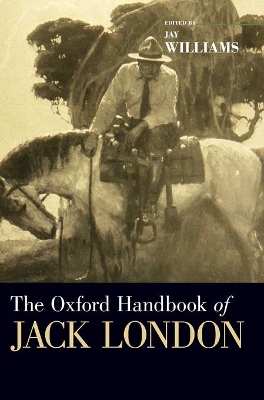Oxford Handbooks
1 total work
London's first-hand engagement with the world—the process of becoming and maintaining himself as a citizen of the world—helps define the kind of writing he produced. It is insufficient now to call him a naturalist writer if his principal concern was to reflect and represent, not the usual fare of...Read more
London's first-hand engagement with the world—the process of becoming and maintaining himself as a citizen of the world—helps define the kind of writing he produced. It is insufficient now to call him a naturalist writer if his principal concern was to reflect and represent, not the usual fare of violence and natural forces that we as literary theorists have used to periodize London's work, but rather something larger, more indeterminant, contemporary. The word
modern appears often in the pages of this handbook, and though it is not new to call London a modernist, the sheer weight of the scholarship in this present volume that attests to this alternative designation gives it a thorough grounding that previous attempts lacked. London called his times the
Machine Age, not just to underscore the rapidity of modern life and its new mechanization, but also to highlight the need for a new social and economic order. The purpose of this handbook is to honor him as a representative American writer of the age as he understood it.
modern appears often in the pages of this handbook, and though it is not new to call London a modernist, the sheer weight of the scholarship in this present volume that attests to this alternative designation gives it a thorough grounding that previous attempts lacked. London called his times the
Machine Age, not just to underscore the rapidity of modern life and its new mechanization, but also to highlight the need for a new social and economic order. The purpose of this handbook is to honor him as a representative American writer of the age as he understood it.
